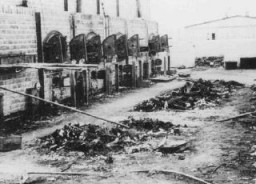You searched for: nazi germany
<< Previous | Displaying results 1151-1175 of 1274 for "nazi germany" | Next >>
-
Yennj Baehr
ID CardYennj and her husband Heinrich were two of a few Jewish residents in Ruchheim, a small town in the Rhine River valley. Yennj helped Heinrich run their dry goods store that was on the first floor of their house. In the summer she liked working in the garden out back. Their son, Kurt, had immigrated to America after World War I. Ida, their daughter, helped them in the store until she married. 1933-39: The Nazis have come to power, and many Jews have decided to leave Germany. Yennj and Heinrich's niece,…
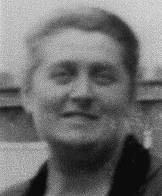
-
Heinrich Baehr
ID CardA Jewish merchant, Heinrich ran a dry goods business with his wife, Yennj, in Ruchheim, a small town in the Rhine River valley. Their son, Kurt, had immigrated to America after World War I. Their daughter, Ida, had helped them in the business until she married. The Baehrs' store took up the first floor of their comfortable two-story brick house. In the summer, they enjoyed their garden in the back. 1933-39: The Nazis have come to power, and many Jews have decided to leave Germany. Heinrich and Yennj's…
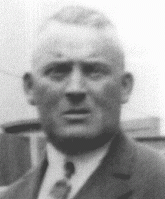
-
Johanna Niedermeier Buchner
ID CardJohanna was born in Vienna when it was still the capital of the Austro-Hungarian Empire. Her Christian family experienced the disruption resulting from the empire's collapse, as well as the instability of the Austrian republic. The depression of 1929 hit Vienna especially hard. In 1931 Johanna became a Jehovah's Witness. 1933-39: Johanna traveled constantly in and out of Austria distributing our Jehovah's Witness literature. In March 1938 Germany annexed Austria and her family was subjected to Nazi law;…
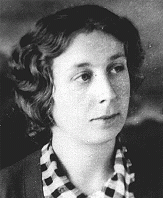
-
Helene Gotthold
ID CardHelene lived in Herne and Bochum in western Germany, where she was married to a coal miner who was unemployed between 1927 and 1938. Following their disillusionment with the Lutheran Church during World War I, Helene, who was a nurse, and her husband became Jehovah's Witnesses in 1926. Together, they raised their two children according to the teachings of the Scripture. 1933-39: Under the Nazis, Jehovah's Witnesses were persecuted for their missionary work and because they believed their sole allegiance…
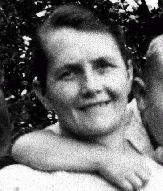
-
Carl Heumann
ID CardCarl was one of nine children born to Jewish parents living in a village near the Belgian border. When Carl was 26, he married Joanna Falkenstein and they settled down in a house across the street from his father's cattle farm. Carl ran a small general store on the first floor of their home. The couple had two daughters, Margot and Lore. 1933-39: Carl has moved his family to the city of Bielefeld, where he is working for a Jewish relief organization. Requests from this area's Jews to leave Germany have…
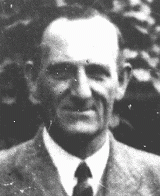
-
Morris Zaidband
ID CardMorris was one of five children born to a Jewish family in the Polish town of Oswiecim, 33 miles west of Cracow [Krakow]. Morris' father sold ladies' undergarments. Morris worked as a jeweler. 1933-39: In September 1939 Germany invaded Poland. Morris's family started to flee eastward but two weeks later the Germans overtook them and they were sent home. When they returned, the Germans were already beating Jews who didn't show them "respect." One day, when German guards came to their house to deport…
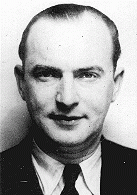
-
Janos Geroe
ID CardJanos was the only child born to a Jewish family in the small agricultural city of Torokszentmiklos, about 65 miles southeast of Budapest. His father, who had a degree in pharmacology, joined his family's grain exporting business. 1933-39: In 1933, when Janos was 4 years old, his parents divorced. According to Hungarian law, Janos was to live with his mother until he was 7 and then return to his father. Janos moved with his mother to her hometown of Szentes, where he began studying at a religious primary…
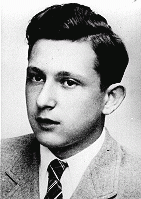
-
Alexandra Schicharva
ID CardAlexandra was the second-youngest of six children born to Russian Orthodox parents. Her family lived in a small village in the Orlovskaya region, some 250 miles south of Moscow [in the Soviet Union]. She attended public school, where she learned German. Alexandra's father was a plasterer and painter, and often worked away from home for months. Her mother worked at a collective farm in the village. 1933-39: In 1933 food was scarce. The government seized grain harvests for export; other crops were taken to…
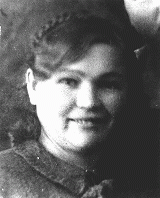
-
Fred Bachner
ID CardFred was born to a Jewish family in the German capital. Berlin's Jewish community was large--approximately 170,000 by 1933--and the city was the seat of most of Germany's national Jewish organizations. Fred's family owned a successful clothing factory. He attended a Jewish public school in Berlin. 1933-39: In 1938 the Germans began deporting Polish citizens. Both Fred's parents were Polish by birth, but only his father and brother were sent to Poland. Fred and his mother remained in Berlin until their…
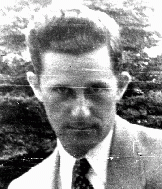
-
Izabella Katz
ID CardIzabella was one of eight children raised in a religious Jewish family in the small town of Kisvarda in northeastern Hungary. Every Friday Izabella and her brother and four younger sisters went to the library to borrow the maximum number of books for their mother. Izabella attended public schools and longed to move to a big city. 1933-39: Antisemitism was prevalent. Izabella can't count the number of times she was called "smelly Jew." Her family cringed at "Heil Hitler" speeches from Germany on the radio…
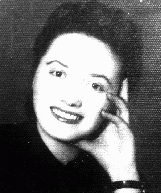
-
Erika Eckstut
ArticleExplore Erika Eckstut's biography and learn about the difficulties and dangers she faced in the Czernowitz ghetto.
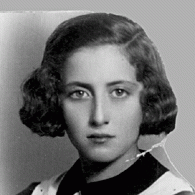
-
Manya Friedman
ArticleExplore Manya Friedmann’s biography and listen to her describe her experiences following the liberation of Auschwitz.
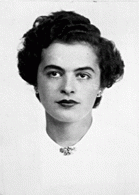
-
Telford Taylor during Justice Case
FilmIn the Justice Case of the Subsequent Nuremberg Proceedings, nine officials from the German Ministry of Justice and seven members of the Nazi-era People's and Special Courts were charged with “judicial murder and other atrocities, which they committed by destroying law and justice in Germany, and then utilizing the emptied forms of legal process for the persecution, enslavement and extermination on a large scale.” In this footage from the trial, US prosecutor Telford Taylor describes the nature…
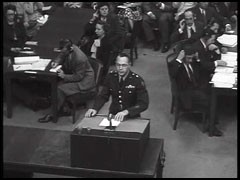
-
Battle of Britain
FilmAfter the defeat of France in June 1940, Germany moved to gain air superiority over Great Britain as a prelude to an invasion of Britain. Despite months of air attacks, Germany was not able to destroy Britain's Royal Air Force (RAF). In the fall of 1940, the invasion was indefinitely postponed. The German bombing campaign against Britain continued until May 1941. The Germans ultimately halted the air attacks primarily because of preparations for the invasion of the Soviet Union in June 1941.
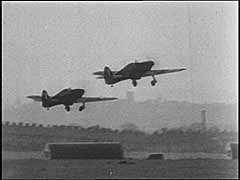
-
Wallace Witkowski describes harsh living conditions for non-Jews in Poland
Oral HistoryWallace and his family were Polish Catholics. His father was a chemical engineer and his mother a teacher. The Germans occupied Kielce in 1939. Wallace witnessed pogroms against Jews in 1942. Wallace was active in the anti-Nazi resistance, acting as a courier between partisan groups. In 1946, in liberated Poland, Wallace witnessed the Kielce pogrom. He was reunited with his father in the United States in 1949; other family members followed. The Communist regime in Poland, however, denied his only sister…
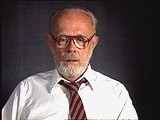
-
Joseph Maier describes Hjalmar Schacht at the Nuremberg trial
Oral HistoryJoseph immigrated to the United States in 1933 after finishing university in Leipzig. His parents and brother had left Germany earlier for the United States. Joseph attended Columbia University. From 1940 to 1943 he was assistant editor for a New York German-Jewish newspaper. In 1944, he worked in the American embassy in Britain as a propaganda analyst. He went to Nuremberg, Germany, as an interpreter in 1946. He analyzed materials and transcripts, and participated in many interrogations for the Nuremberg…
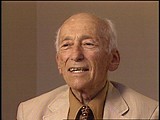
-
Joseph Maier describes former Auschwitz commandant Rudolf Hoess at the Nuremberg trial
Oral HistoryJoseph immigrated to the United States in 1933 after finishing university in Leipzig. His parents and brother had left Germany earlier for the United States. Joseph attended Columbia University. From 1940 to 1943 he was assistant editor for a New York German-Jewish newspaper. In 1944, he worked in the American embassy in Britain as a propaganda analyst. He went to Nuremberg, Germany, as an interpreter in 1946. He analyzed materials and transcripts, and participated in many interrogations for the Nuremberg…
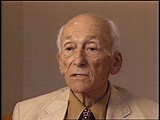
-
Franz Wohlfahrt describes the trial and sentencing of his father
Oral HistoryFranz and his family were Jehovah's Witnesses. Germany annexed Austria in 1938. After World War II began, Franz's father was executed because, as a Witness, he opposed war. In 1940, Franz refused to participate in military training and would not salute the Nazi flag. He was imprisoned, interrogated by the Gestapo (German Secret State Police) in Graz, and sentenced to five years of hard labor in a camp in Germany. Franz was liberated by US forces in 1945.
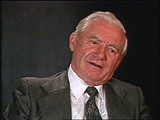
-
The Bielski Partisans
ArticleUnder the protection of the Bielski partisan group, founded by brothers Tuvia, Asael, and Zus, over 1,200 Jews survived after fleeing into forests in western Belarus.
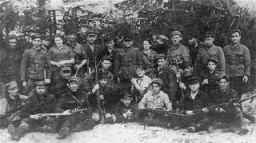
-
Polish Jews in Lithuania: Escape to Japan
ArticleAfter 1940, Polish refugees were pressured to leave Lithuania. Learn more about the diplomats that assisted them and their journey to Japan.
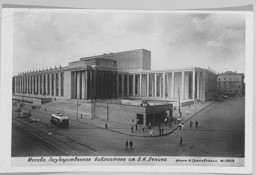
-
The Harrison Report
ArticleThe Harrison Report criticized conditions in the DP camps, called for changes in the treatment of Jewish DPs, and recommended allowing them to emigrate to the US and Palestine.
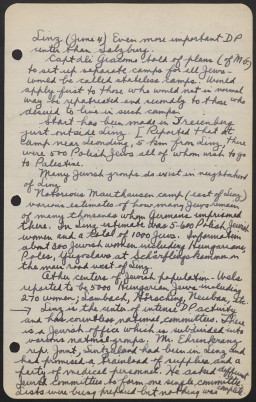
-
Subsequent Nuremberg Proceedings, Case #9, The Einsatzgruppen Case
ArticleThe Einsatzgruppen Case was Case #9 of 12 Subsequent Nuremberg Proceedings against leading German industrialists, military figures, SS perpetrators, and others.
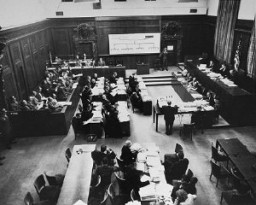
-
The Armenian Genocide (1915-16): In Depth
ArticleLearn more about the Armenian Genocide, which was the physical annihilation of ethnic Armenian Christians living in the Ottoman Empire between 1915-1916.
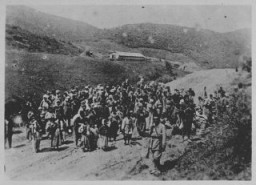
-
Norbert Wollheim describes a roundup of Jews in Berlin
Oral HistoryNorbert studied law and was a social worker in Berlin. He worked on the Kindertransport (Children's Transport) program, arranging to send Jewish children from Europe to Great Britain. His parents, who also lived in Berlin, were deported in December 1942. Norbert, his wife, and their child were deported to Auschwitz in March 1943. He was separated from his wife and child, and sent to the Buna works near Auschwitz III (Monowitz) for forced labor. Norbert survived the Auschwitz camp, and was liberated by US…
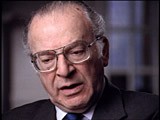
-
Lublin/Majdanek Concentration Camp: Conditions
ArticleIn 1940, the Nazis established Lublin (Majdanek) concentration camp in Lublin, Poland. Learn more about camp conditions.
